News
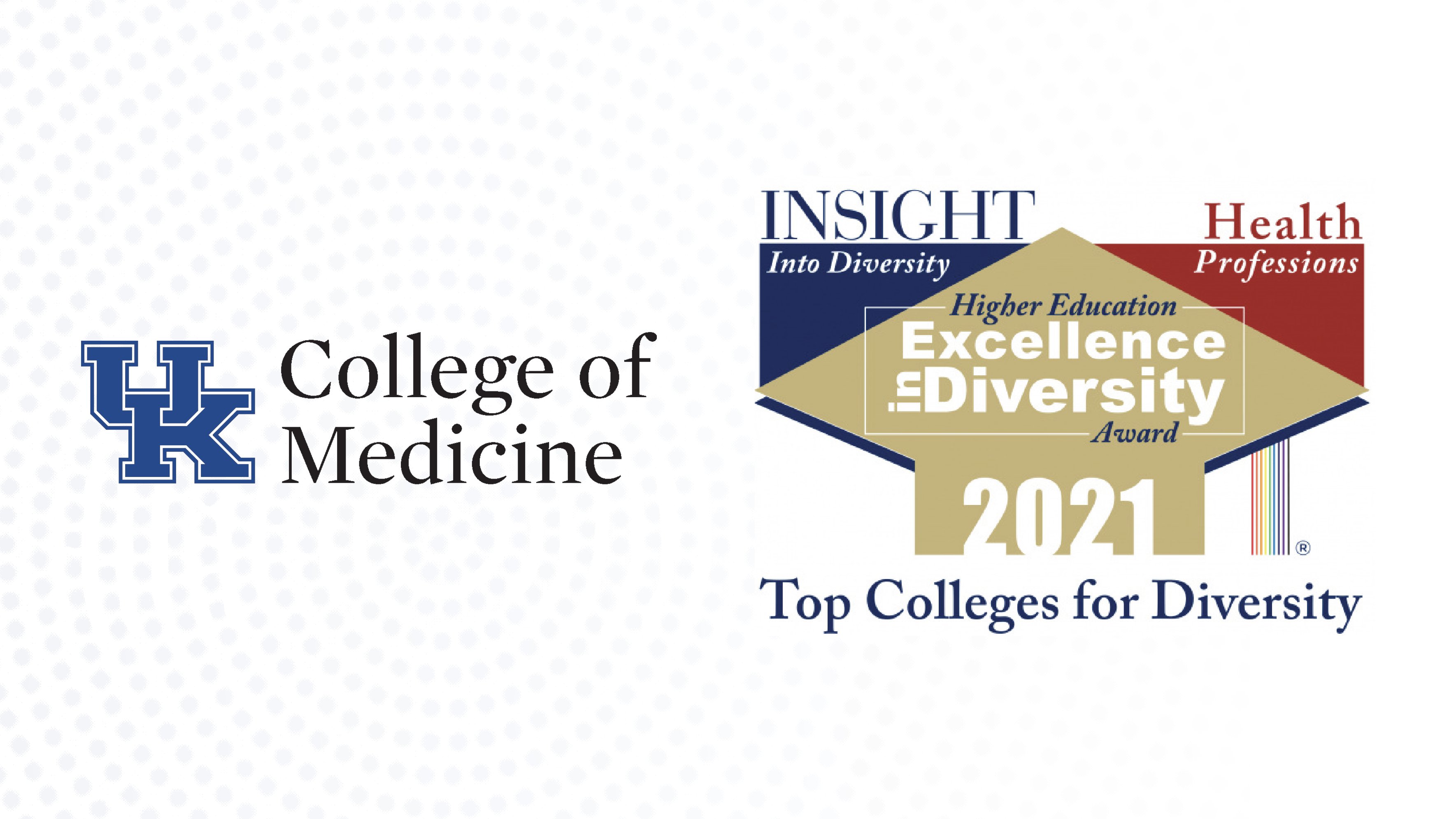
The University of Kentucky College of Medicine has received the 2021 Health Professions Higher Education Excellence in Diversity (HEED) Award from INSIGHT Into Diversity magazine, the oldest and largest diversity-focused publication in higher education.

LEXINGTON, Ky. (Oct. 6, 2021) — Recent work from the University of Kentucky College of Medicine published in Cell Press discusses an essential signaling pathway that causes metabolic dysfunction including insulin resistance and obesity.
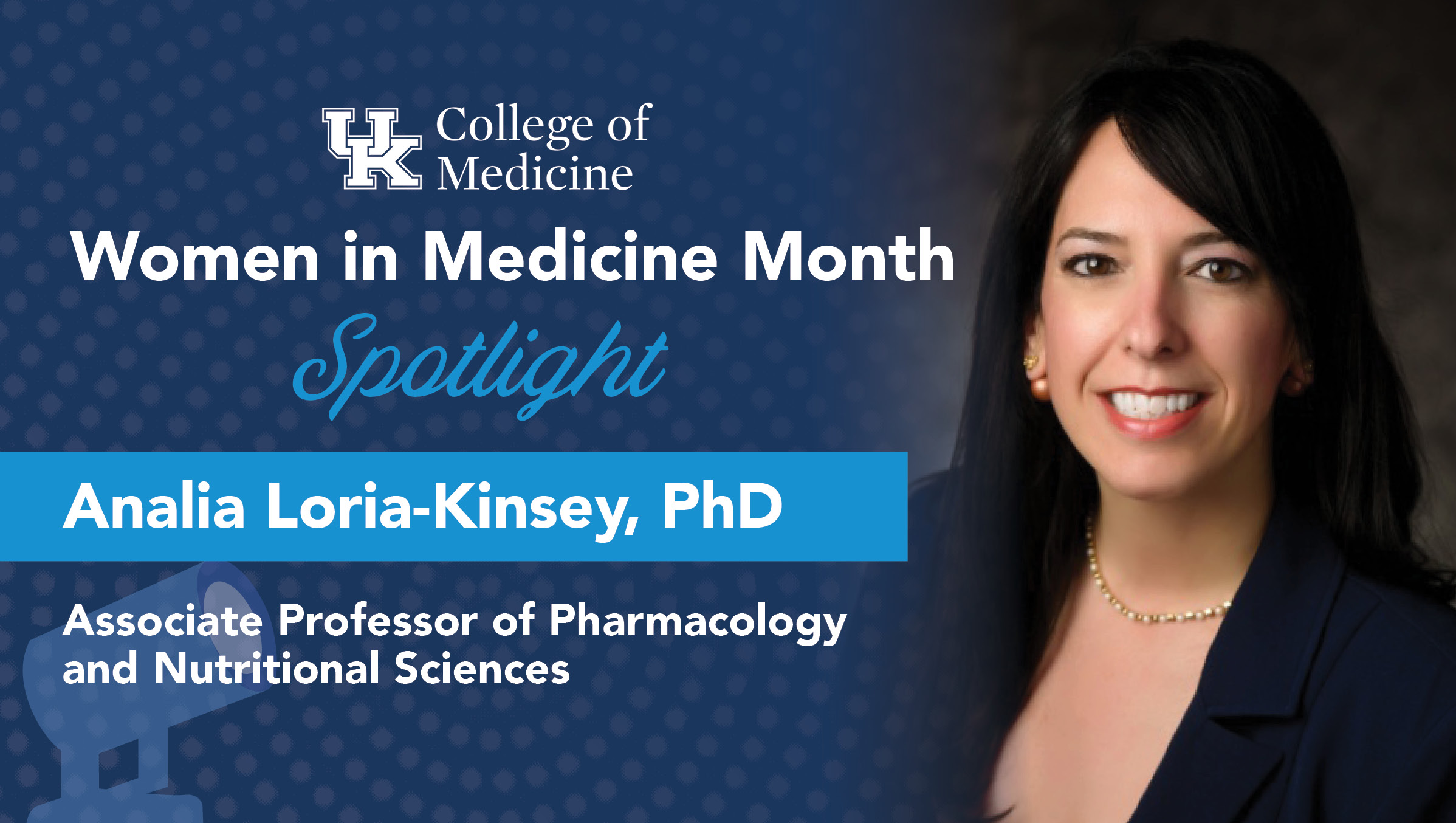
In a Q&A for Women in Medicine Month, Analia S. Loria-Kinsey, PhD, associate professor of pharmacology and nutritional sciences, discusses how she contributes to the College of Medicine and how she prepares the learners she mentors to excel in their careers.
Q: What are your current roles at the College of Medicine, and what do you do?
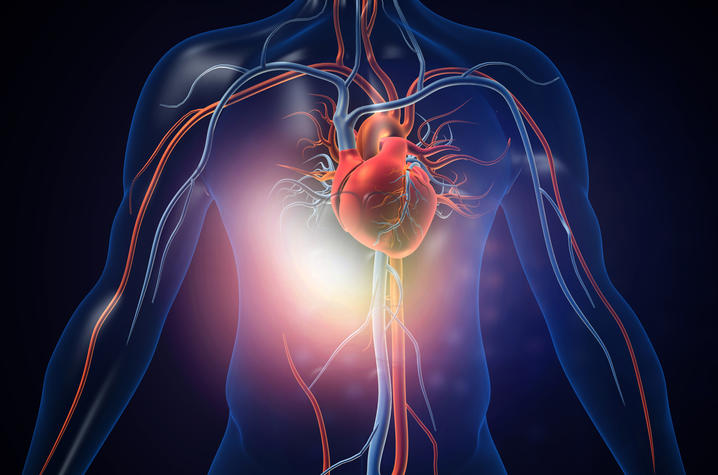
LEXINGTON, Ky. (Sept. 14, 2021) — What if there were a way to cure hypertension associated with obesity? University of Kentucky researcher Frédérique Yiannikouris, Ph.D., an assistant professor in the University of Kentucky College of Medicine's Department of Pharmacology and Nutritional Sciences, may be on track to find it.
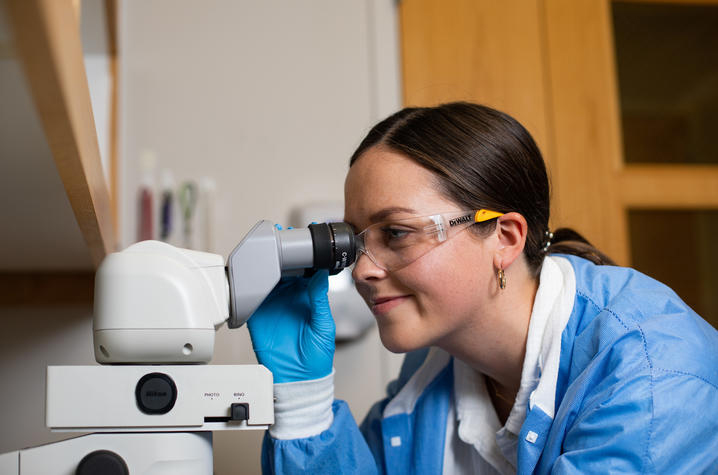
LEXINGTON, Ky. (July 21, 2021) — Each summer, the University of Kentucky College of Medicine hosts an intensive, graduate-level research program that sets undergraduates aspiring to become health care providers and scientists on a path to success.

LEXINGTON, Ky. (July 2, 2021) — A new University of Kentucky College of Medicine study suggests that time-restricted eating may be able to help people with Type 2 diabetes reduce nocturnal hypertension, which is characterized by elevated blood pressure at night.

In his 40 years at the University of Kentucky College of Medicine, Michael T. Piascik, PhD, has mentored hundreds of medical students and graduate students while bringing key funding to the college as a researcher to help produce groundbreaking discoveries in pharmacology.
After a long and distinguished career, Dr. Piascik has announced he will retire, effective July 1.
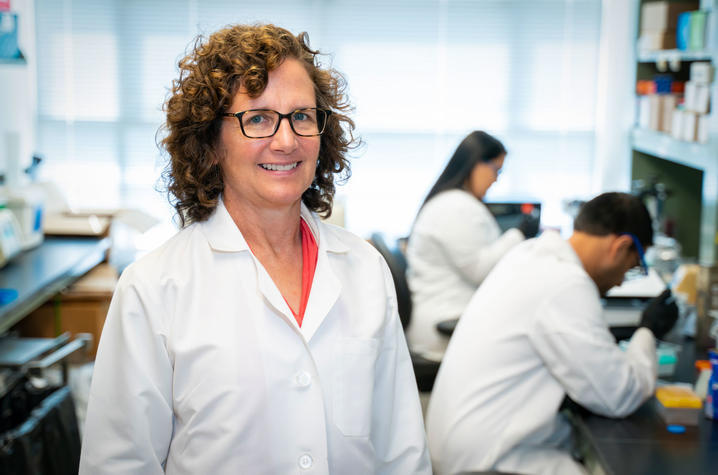
LEXINGTON, Ky. (April 27, 2021) — Annually, Best of Cell Press celebrates the highest-impact research published in their journals during the previous year. A paper by Barbara Nikolajczyk, Ph.D., professor of Pharmacology and Nutritional Sciences and associate director for Translational Research in Diabetes at the University of Kentucky, has been included in “Best of Cell Metabolism 2020.” The paper focuses on age-associated inflammation.
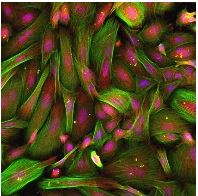
PILOT PROJECT FUNDING OPPORTUNITY
THE CENTER FOR BIOMEDICAL RESEARCH EXCELLENCE ON OBESITY AND CARDIOVASCULAR DISEASES (COCVD)
The University of Kentucky College of Medicine would like to recognize and congratulate its departments that made it in the Blue Ridge Institute for Medical Research (BRIMR) 2020 rankings.

The seventh annual Healthy Hearts for Women virtual symposium will take place Friday, Feb. 5, 2021. A virtual round table hosted by Women in Medicine and Science (WIMS) will follow the symposium.
8:30 a.m.-Noon
Healthy Hearts for Women Symposium
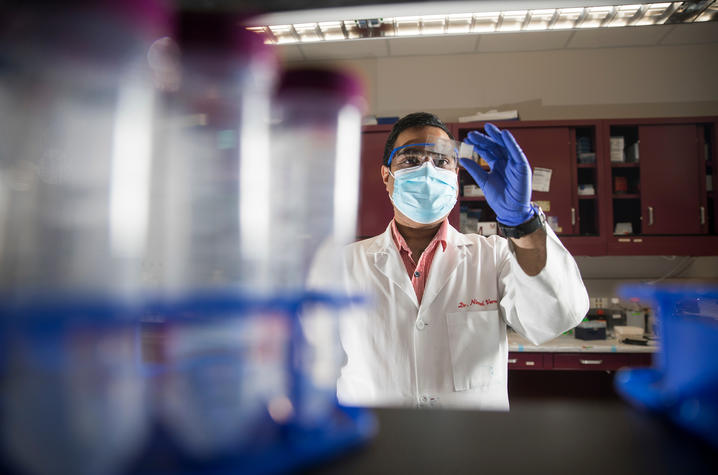
LEXINGTON, Ky. (Jan. 20, 2021) — More than 5.7 million Americans live with Alzheimer’s disease and that number is projected to triple by 2050. Despite that growing number, there is not yet a cure.

As part of its commitment toward creating a more inclusive work and learning environment, the University of Kentucky College of Medicine has established additional leadership roles in the Office of Diversity, Equity, and Inclusion. The college is pleased to announce the appointment of Kevin Pearson, PhD, to oversee progress in research as the inaugural director of inclusive research initiatives.

Location: https://uky.zoom.us/j/81146001530
Friday, December 4, 2020
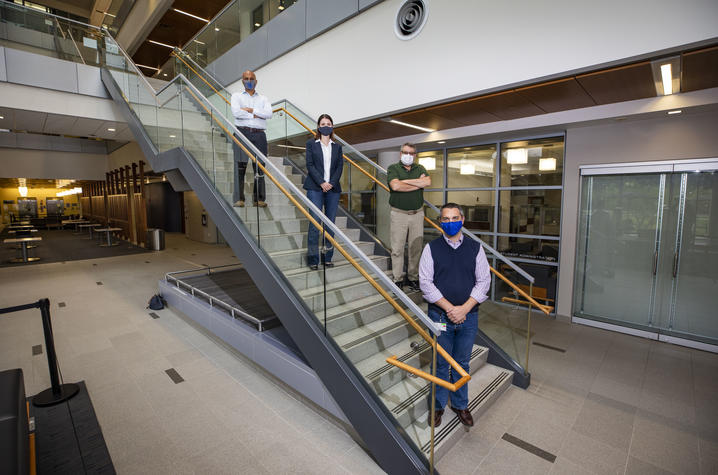
LEXINGTON, KY. (Oct. 27, 2020) — A $2.9 million grant from the National Institutes of Health (NIH) is supporting a multidisciplinary team of University of Kentucky researchers in continuing their work to find therapeutic strategies to resolve neurovascular inflammation and repair blood-brain barrier dysfunction in epilepsy.
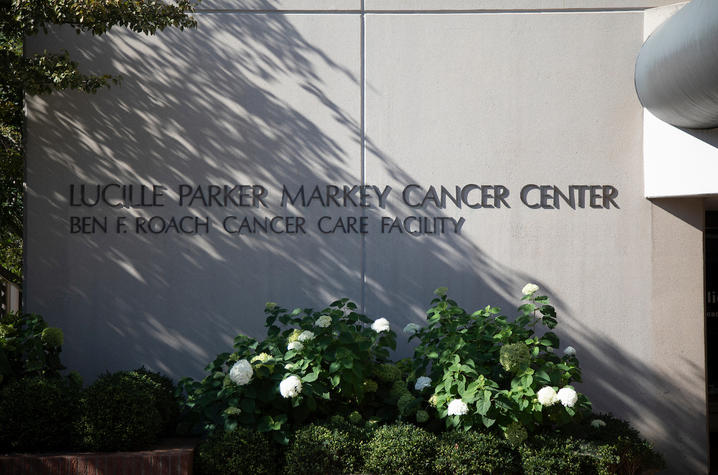
A new study led by researchers at the University of Kentucky Markey Cancer Center and UK Department of Pharmacology and Nutritional Sciences demonstrates the potential benefit of using an anti-leukemic drug nilotinib – most commonly used to treat chronic myelogenous leukemia – to overcome therapy resistance in metastatic melanoma.

LEXINGTON, Ky. (Sept. 2, 2020) — A new University of Kentucky College of Medicine study provides insight into how a protein called angiotensinogen (AGT) contributes to blood pressure regulation and atherosclerosis.
AGT is a member of the renin-angiotensin system, a hormone system in the human body that regulates blood pressure and fluid balance. AGT produces angiotensin II, which regulates blood pressure and contributes to atherosclerosis, or the buildup of plaque in the arteries.

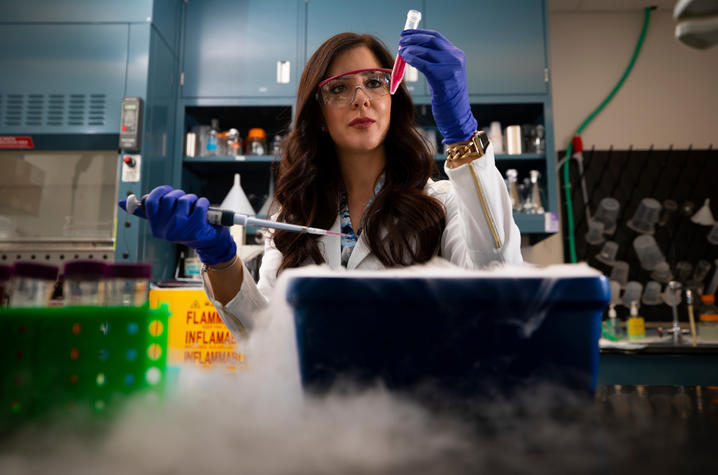

LEXINGTON, Ky. (July 14, 2020) — A new study by researchers at the University of Kentucky identifies a novel function of the enzyme spermine synthase (SMS) to facilitate colorectal cancer growth.
SMS is an enzyme that produces spermine from spermidine, which has been shown to be important for cell growth. However, excessive accumulation of spermidine can have harmful effects on cell viability. How cancer cells maintain a relatively high level of spermidine but below the toxic threshold to facilitate tumor growth is not well understood.